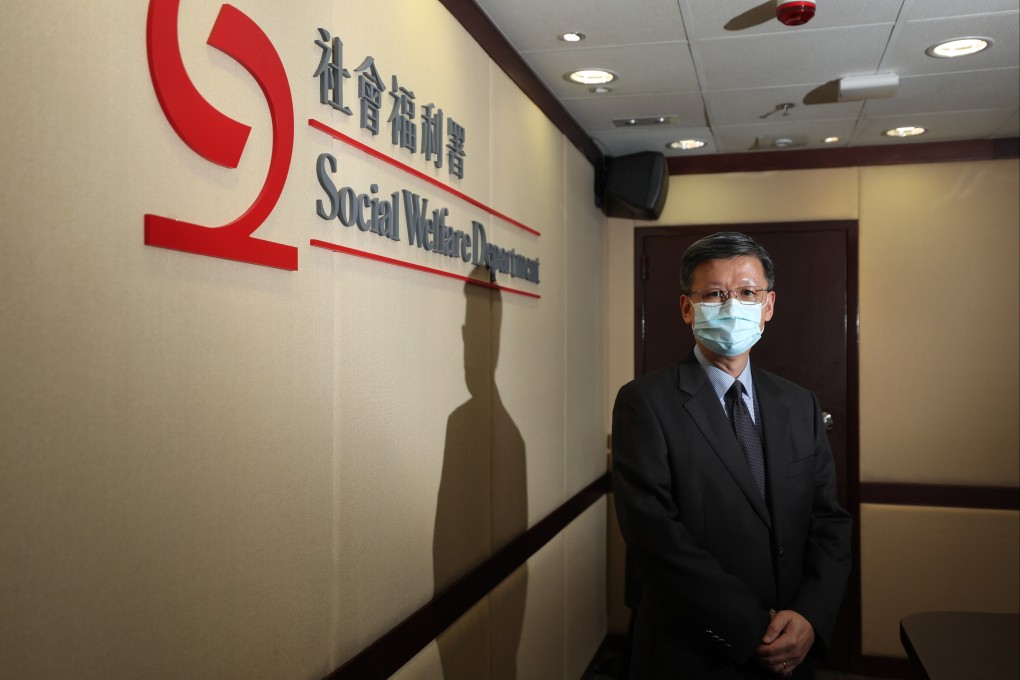More Hongkongers turned to financial and food assistance last year as Covid-19 upended society
- About 310,000 people benefited from cash allowances under Comprehensive Social Security Assistance scheme by end of November last year
- Social security spending is expected to reach HK$65 billion for the 2021-22 financial year, up from HK$42 billion recorded in 2017-18

An increasing number of Hongkongers received financial and food assistance last year as the Covid-19 pandemic slashed incomes and left many jobless, which drove up welfare spending, the social welfare director has revealed.
But Gordon Leung Chung-tai promised that despite the rising cost, the government would continue to support those in need.
“The department’s work over the past year was centred on the pandemic to help people in need to overcome their difficulties,” he told the media on Thursday.
Social security spending is expected to reach about HK$65.4 billion (US$8.38 billion) in the 2021-22 financial year, up by 54 per cent from the roughly HK$42.4 billion recorded in 2017-18, according to Leung.
The Comprehensive Social Security Assistance (CSSA) scheme, which provides monthly cash allowances for households in financial need, had about 220,000 cases by the end of November last year, benefiting about 310,000 people.
Some 18,700 cases fell under the category of unemployment, a nearly 50 per cent jump from the 12,600 recorded in January 2020, when the pandemic started.
That mirrors the rising unemployment rate, which went from less than 4 per cent before Covid-19 to 7.2 per cent during the three months up to February last year, before gradually falling to 4.1 per cent in the three months to November 2021.